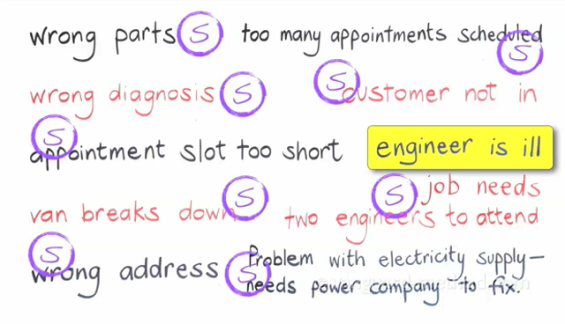This post continues my discussion about the books that I discovered in 2014 that I think should influence management in local government.
3. Improving Performance – How to Manage the White Space on the Organisation Chart by Geary A. Rummler and Alan P. Brache. Published in 1995, this book is quite different to the other two books recommended. It is not about the public sector and it is a hard core management book. The authors have developed a way of thinking about organisations and their performance that is very relevant to local government. Topics covered include managing processes and organisations as systems, linking performance to strategy, redesigning processes, and designing a performance measurement system.
Rummler and Brache apply their systems view by discussing the interdependence of nine performance variables shown in the diagram below.

The levels of performance and the performance needs are described:
- Organisation level – the organisational strategy, goals, and organisational structure.
- Process level – how work flows across functions in the organisational structure.
- Job/performer level – the people doing the work in processes.
- Goals – the customer’s expectations of service quality, quantity, timeliness or cost, etc.
- Design – of the organisation, processes and jobs to achieve the goals.
- Management – the practices in place to ensure goals are current and being achieved.
It is a simple and powerful way to think about organisations vertically and horizontally. In a diverse organisation like local government, understanding the performance variables is critical to improving cross-functional services and reducing the ‘silo effect’ in which functional goals are put ahead of the goals of processes that deliver services to customers. Read it if you are interested in cross functional processes and improving service delivery.
4. The Leaders Handbook by Peter R. Scholtes. Published in 1998, this book is also a serious management text. Written in an engaging way with lots of diagrams and case studies to illustrate points, it is accessible and easily read. So, don’t be put off. For someone who believes in systems thinking, it contains gems, such as this one below written in the context of performance appraisal and why Scholtes believes it isn’t effective;
“Successful work requires having a consistent and reliable set of systems, processes, and methods by which you and your people design, develop, and deliver what the customers need when and how the customers need it. Systems are created, sustained, and improved by insightful and interactive work on the system, not by using carrots and sticks. Measurable goals do not improve systems. Improving systems improves systems (p.303).”
Chapters cover a wide range of topics including, systems thinking; giving meaning, purpose, direction and focus to work; leading by asking good questions; and performance without appraisal. It is clear that Scholtes (a colleague of W. Edwards Deming) values systems and statistical thinking, relations with people, and learning to master improvement. He sees organisations as ‘complex systems of social networks and technical processes in which simplistic approaches will not help resolve complex problems’. He identifies 6 leadership competencies:
- Systems thinking – understanding the difference between systems and structure or policy; and seeking systemic causes, not culprits.
- Variability at work – knowing the difference between common cause and special causes of variation.
- Learning – understanding when a statement is theory or opinion versus fact, and acting accordingly; and knowing the difference between change and improvement.
- Psychology and human behaviour – understanding and applying the concepts of internal versus external motivation and demotivation.
- Interactions – seeing the interdependencies between systems thinking, variation, learning and human behaviour.
- Vision, meaning, direction and focus – providing clarity of purpose and developing and continuously communicating a clear sense of direction and focus.
Scholtes sets out a new paradigm for leadership for complex socio-technical systems. Local government, with its political and organisational challenges, is nothing if not complex (as discussed in post 3).
I challenge you to read these books and then decide whether you think about your organisation as a system and if it is really focussed on creating public value by fulfilling customer-defined purpose through effective and efficient processes where variation is understood and performance is measured.
Lancing Farrell







